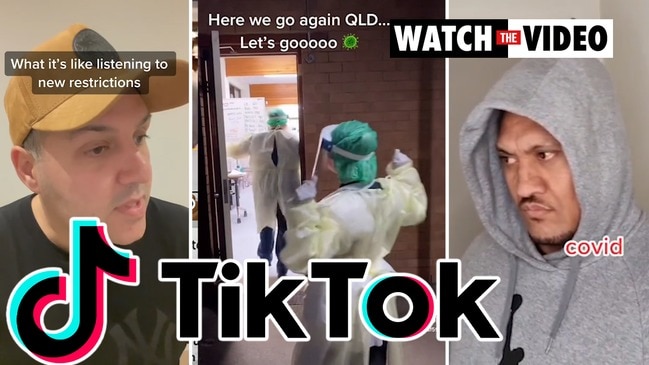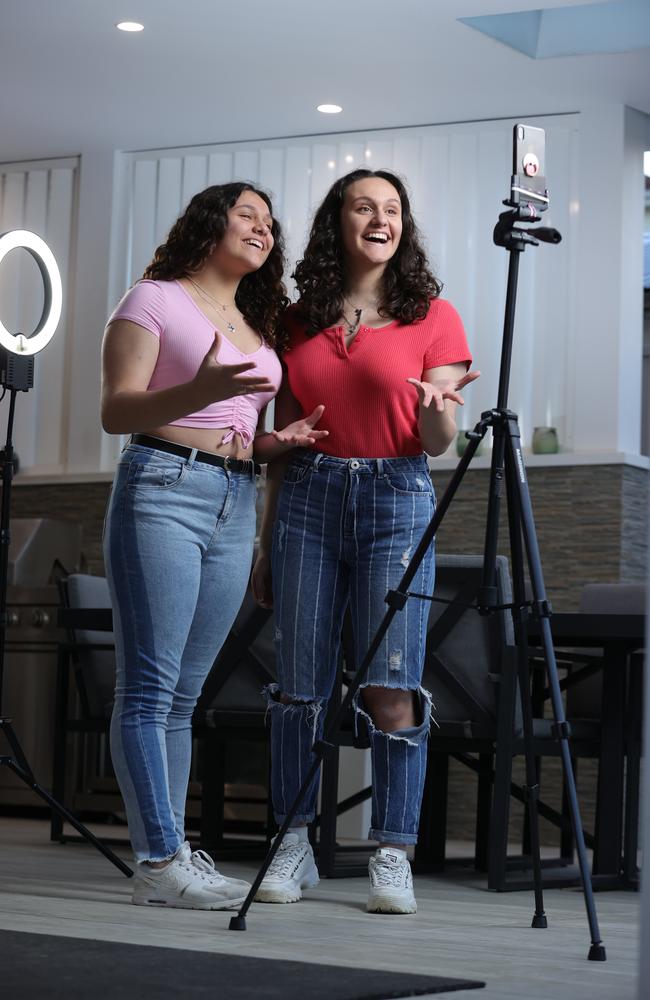TikTok becomes the job tool of choice as teens swap resumes for video
Teens shying away from traditional job interviews are instead turning to TikTok to publicly assert their credentials for a role — and some employers are loving it.

Education
Don't miss out on the headlines from Education. Followed categories will be added to My News.
Teenage jobseekers are ditching the traditional CV to land a position and are instead turning to three-minute TikTok videos to impress bosses as the social media platform fast becomes the employment tool of choice in the US.
TikTok Resumes promises to match US jobseekers with future bosses who watch their publicly visible video CVs in which job candidates talk to the camera about their suitability for the role.

Young Australian jobseekers are set to follow suit and local employment experts welcomed the move because it will allow employers to quickly sift through unsuitable applicants while also reducing the untruths that an estimated 80 per cent of job candidates tell on their resumes.
Under the scheme, users create a video talking about their education, experience and skills and supply the prospective employer with the link when they apply.
Australian recruitment agency Michael Page’s regional director Sung Ho Lee, said video resumes would be useful for companies in customer-facing roles because they could get the right people in for an interview.
“It is ideal for retail, fast food, more for that first-job age demographic or a certain type of candidate,” Mr Lee said.
But he also said it could be used by university graduates who could show off communication skills in their job applications, especially in technology fields, as companies shifted from demanding simply good grades to hiring someone who was also a good cultural fit for the company.
“There is a big focus on communication, problem solving, personality and how someone can articulate things,’’ he said.
“They are the softer skills that can’t be detailed on a piece of paper so putting it on a video makes sense.”

Edith Cowan University employment professor Kerry Brown said by forcing applicants to post a publicly visible video, candidates would be less likely to lie.
“It forces people into a level of transparency you do not necessarily have with a paper resumé,” Prof Brown said.
“They could also spin a story, but you would have to have a lot of front to say something you haven’t done.
“We know already that employers check Facebook and have a look at their personal life, which they’re not meant to do, but they do it to check if it is consistent with the resume.”
Prof Brown said there were “creative” ways to mislead a future employer, like people who were cleaners but called themselves a “sanitation engineer” or someone who exaggerated their qualification.
Professional resume writers have estimated that 80 per cent of Australians tell untruths on their CVs.
Gymea Bay resident Alyssa Bishara, 17, said submitting a video to a prospective employer would help her show her true nature instead of being nervous like she might be in a job interview.
“It shows more of your personality and it would probably just open the workforce up compared to people who just look good on paper,” she said.
“My sister and I do a lot of video auditions for things. It would be good to see how someone interacts and how they speak which you just don’t get with a paper resume.”




